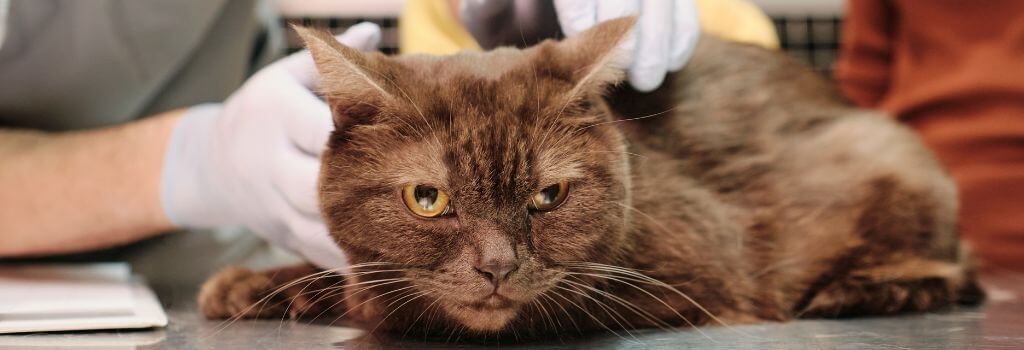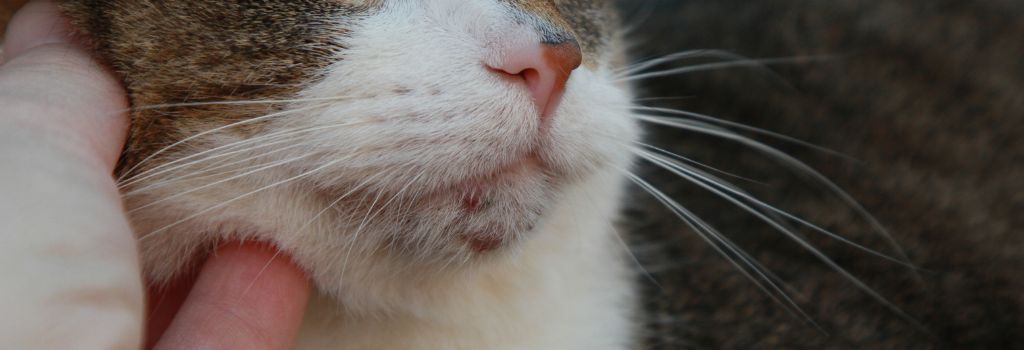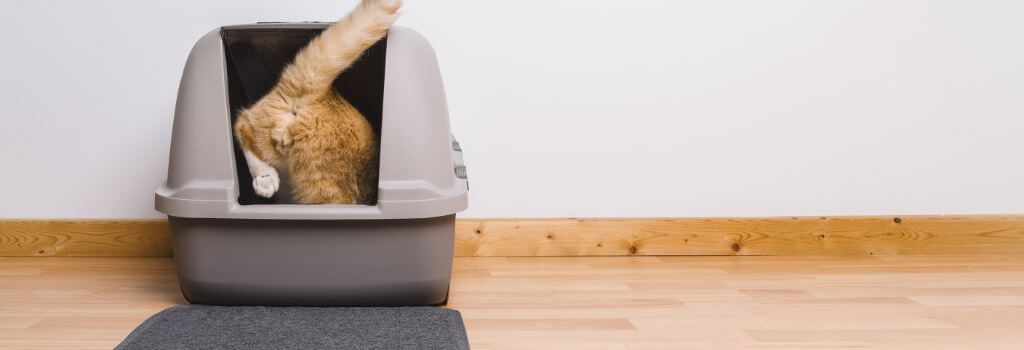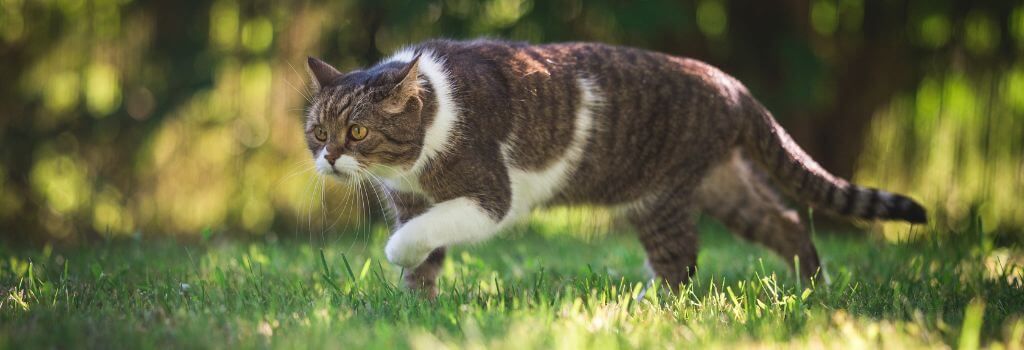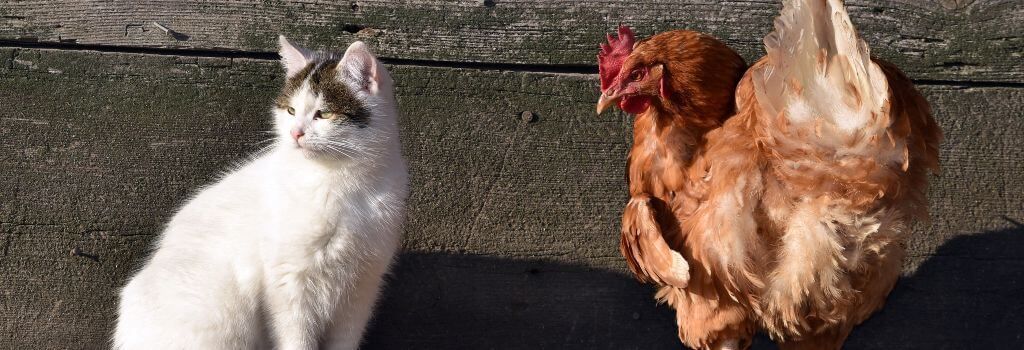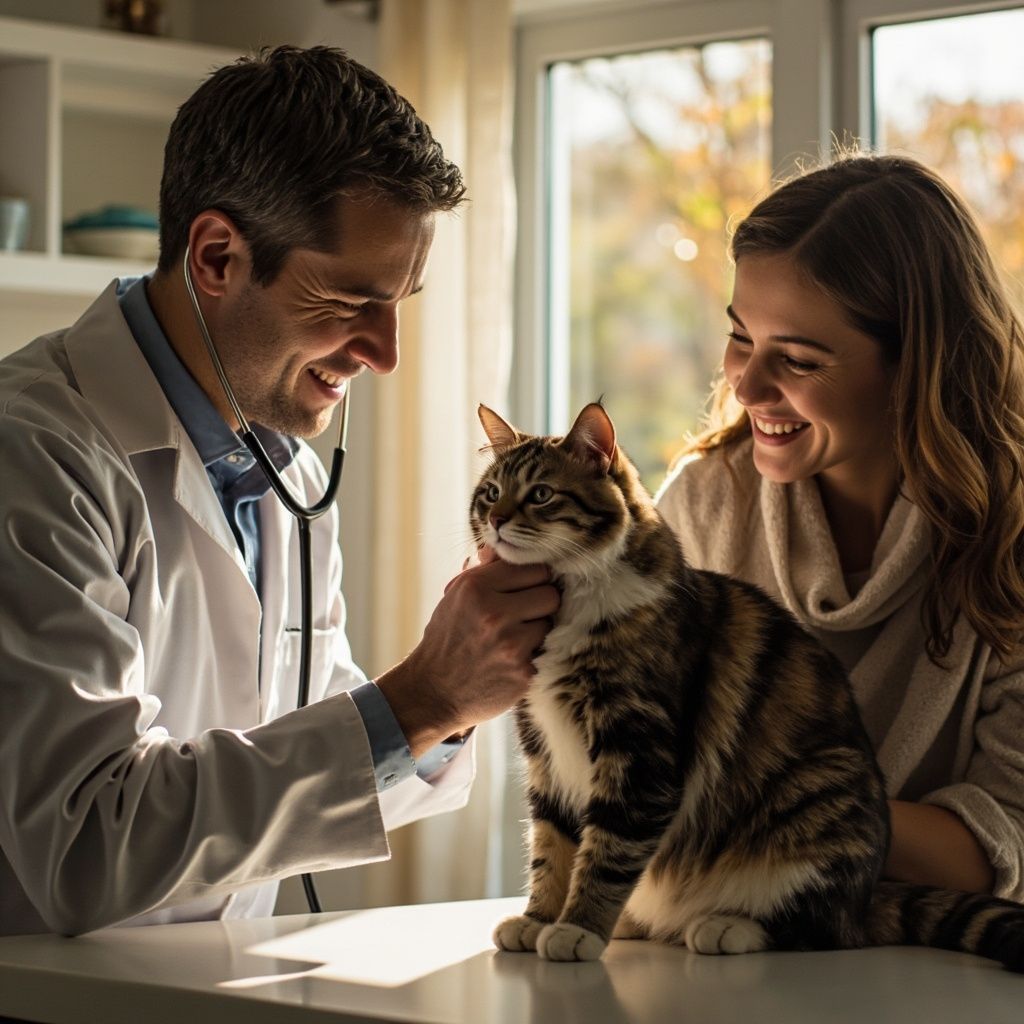How to Make Your Home More Senior Cat-Friendly
When you adopted your new kitten several years ago, you likely took steps to “ kitten proof ” your home and make it safer for your new furry family member. You may have relocated breakable décor, locked up cleaning chemicals, and become better about not leaving hair ties lying around for your cat to find. Now, as your feline friend is getting older, you probably don’t need to worry so much about them getting into things they shouldn’t. Instead, you may need to turn your attention to making your home safer and more accessible as part of your senior cat care regimen.
Just like older humans, senior cats often have a harder time getting around. They also become more likely to lose their vision or hearing as they age. Older cats are at increased risk for bladder issues, arthritis , and cognitive problems, too, and could have trouble with normal daily tasks as a result.
As veterinarians, our goal is to help our patients remain happy and healthy through all life stages. We believe that your cat’s golden years can be just as comfortable and rewarding as their younger years. That’s why we’ve put together this post with some tips and tricks on how to make your home senior cat-friendly. By making a few simple adjustments, you can keep your feline friend safe, comfortable, and happy.
Rethink Your Litter Box
The litter box deserves a lot of attention as your cat gets into their senior years. There are many things you can do to make this experience easier for them as they experience the physical and mental changes that come with aging.
Three things you can do to help your senior cat use the litter box are:
1. Older cats need larger litter boxes that give them plenty of room for doing their business without needing to curl up or crouch. If the box is too small to use comfortably, your cat might stop using it, which is never any fun for anyone!
2. Make sure the litter box is easy to access, too. Consider switching to a box with lower sides or one that has a ramp. This is especially important if your cat has arthritis.
3. You already should have one litter box for each cat in your home plus one extra. As your cat gets older, though, you may want to add even more. Having multiple boxes throughout your home makes things much easier for older cats with bladder control, cognitive, or mobility issues.
Provide Easy Access to Much-Loved Spots
Your senior cat loves their favorite spots now just as much as they did when they were younger. They may, however, have a harder time getting there. Cats of all ages love private spots, especially those that are high up and allow them to keep an eye on their surroundings. Senior kitties are often unable to jump and climb as well as their younger counterparts, though.
Fortunately, you can solve this all-too-common issue by making some simple changes. Carpet-covered stairs make climbing easier (and safer) for older cats. You can also install ramps and perches to give your feline friend access to high-up spots.
If your cat has vision issues , avoid moving your furniture. This is a good idea for cats with cognitive problems, too. Keeping things in the same place makes it much easier than forcing your cat to learn new traffic patterns. Consider placing night lights around your home, too, to make it easier for your pal to navigate after dark.
Keep Comfort in Mind
Achy joints and decreased muscle mass and body conditioning often lead to discomfort in older animals. Keep your cat comfy by adding some extra padding and even a heat source or two to their favorite resting areas. There are tons of cat beds to choose from – including orthopedic styles – that any cat is sure to love. And with heating pads made especially for pets, you can ease your furry friends’ discomfort and make naptime even more enjoyable. Placing a nice, soft bed where it will catch some sunbeams is a great idea, too!
Also, consider replacing your cat’s dishes to make mealtime less uncomfortable. Crouching to eat or drink can be painful, especially for cats with illnesses such as arthritis, as it puts stress on the hips, elbows, and neck. Alleviate this problem by switching to raised cat bowls. Look for dishes that are high enough to allow your cat to eat and drink while standing or sitting to ensure the most comfortable dining and drinking experience.
Remember That Old Age Isn't a Disability
Don’t assume that old age alone is responsible for making your cat slow down or spend more time sleeping. If your once-active pet now barely wants to get up even to get a bite to eat, they could be in pain. And aggression should not be brushed off as age-related crankiness. It, too, could indicate that your cat is in pain.
As your cat gets older , pay close attention to their behavior. Keep an eye on the litter box, and monitor their food and water intake. If you notice any changes, it is always best to consult with their veterinarian. Cats are experts when it comes to not letting their owners know when something is wrong. That’s why it is so important to schedule a vet visit for even the most seemingly insignificant changes. Erring on the side of caution could save your four-legged best friend’s life!
That's That For Senior Cats
The aging process takes a toll on humans and animals alike. Even as your cat enters their senior years, though, there are plenty of things you can do to keep them comfortable. You owe it to your feline family member to make their golden years comfortable and safe, and we are here to help. In addition to making some simple changes around your home, we encourage you to schedule an appointment with our team. We look forward to helping you make your senior cat’s golden years their best years.
Recent Posts

